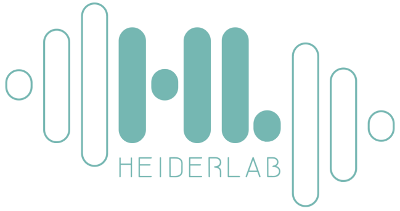CORona Drug InTEractions database
Identifying Effective Antiviral Drugs Against SARS-CoV-2 by Drug Repositioning Through Virus-Drug Association Prediction
Lihong Peng, Xiongfei Tian, Ling Shen, Ming Kuang, Tianbao Li, Geng Tian, Jialiang Yang, Liqian Zhou
Abstract
A new coronavirus called SARS-CoV-2 is rapidly spreading around the world. Over 16,558,289 infected cases with 656,093 deaths have been reported by July 29th, 2020, and it is urgent to identify effective antiviral treatment. In this study, potential antiviral drugs against SARS-CoV-2 were identified by drug repositioning through Virus-Drug Association (VDA) prediction. 96 VDAs between 11 types of viruses similar to SARS-CoV-2 and 78 small molecular drugs were extracted and a novel VDA identification model (VDA-RLSBN) was developed to find potential VDAs related to SARS-CoV-2. The model integrated the complete genome sequences of the viruses, the chemical structures of drugs, a regularized least squared classifier (RLS), a bipartite local model, and the neighbor association information. Compared with five state-of-the-art association prediction methods, VDA-RLSBN obtained the best AUC of 0.9085 and AUPR of 0.6630. Ribavirin was predicted to be the best small molecular drug, with a higher molecular binding energy of −6.39 kcal/mol with human angiotensin-converting enzyme 2 (ACE2), followed by remdesivir (−7.4 kcal/mol), mycophenolic acid (−5.35 kcal/mol), and chloroquine (−6.29 kcal/mol). Ribavirin, remdesivir, and chloroquine have been under clinical trials or supported by recent works. In addition, for the first time, our results suggested several antiviral drugs, such as FK506, with molecular binding energies of −11.06 and −10.1 kcal/mol with ACE2 and the spike protein, respectively, could be potentially used to prevent SARS-CoV-2 and remains to further validation. Drug repositioning through virus–drug association prediction can effectively find potential antiviral drugs against SARS-CoV-2.
Source: PubMed
Related molecules
Related interactions
| Target | Drug | Type | Result |
|---|---|---|---|
| Angiotensin-converting enzyme 2 | Ribavirin | ||
| Angiotensin-converting enzyme 2 | Chloroquine | ||
| Angiotensin-converting enzyme 2 | Tacrolimus | ||
| Angiotensin-converting enzyme 2 | Remdesivir |
| Target | Target affiliation | Drug | Type | Result |
|---|---|---|---|---|
| Target | Target affiliation | Drug | Type | Result |
| Name | Synonyms | Genes | Origin |
|---|---|---|---|
| Name | Synonyms | Genes | Origin |
| Name | Synonyms | PubChem | DrugBank | RCSB PDB | ATC |
|---|---|---|---|---|---|
| Name | Synonyms | PubChem | DrugBank | RCSB PDB | ATC |
| Title | Authors | DOI | Source | Article type | Date |
|---|---|---|---|---|---|
| Title | Authors | DOI | Source | Article type | Date |
| Title | Status | Phases | Start Date | Prim. Comp. Date | Comp. Date | First Post. Date |
|---|---|---|---|---|---|---|
| Title | Status | Phases | Start Date | Prim. Comp. Date | Comp. Date | First Post. Date |
CORDITE (CORona Drug InTEractions database) collects and aggregates data from PubMed, MedRxiv, BioRxiv, ChemRxiv and PMC for SARS-CoV-2. Its main focus is set on drug interactions either addressing viral proteins or human proteins that could be used to treat COVID. It collects and provides up-to-date information on computational predictions, in vitro, as well as in vivo study data.
The information provided is for research only and we cannot guarantee the correctness of the data.
Please contact dominik.heider@uni-muenster.de for further information.
Programmable access
There is an open API for access programmatically to the database. The API will print a JSON output:
- Interactions
https://cordite-api.uni-muenster.de/api.php?action=list&table=interaction
- Targets
https://cordite-api.uni-muenster.de/api.php?action=list&table=target
- Drugs
https://cordite-api.uni-muenster.de/api.php?action=list&table=drug
- Publications
https://cordite-api.uni-muenster.de/api.php?action=list&table=publication
- Clinical trials
https://cordite-api.uni-muenster.de/api.php?action=list&table=clinical_trial

